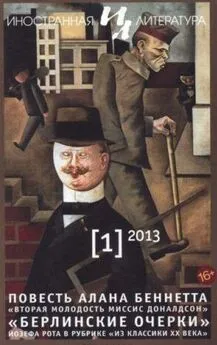Toni Morrison - Song of Solomon
- Название:Song of Solomon
- Автор:
- Жанр:
- Издательство:неизвестно
- Год:неизвестен
- ISBN:нет данных
- Рейтинг:
- Избранное:Добавить в избранное
-
Отзывы:
-
Ваша оценка:
Toni Morrison - Song of Solomon краткое содержание
Song of Solomon - читать онлайн бесплатно полную версию (весь текст целиком)
Интервал:
Закладка:
“It was a Sunday when I met up with some pickers. Folks call ’em migrants nowadays; then they was just called pickers. They took me in and treated me fine. I worked up in New York State pickin beans, then we’d move to another place and pick a different crop. Everyplace I went I got me a rock. They was about four or five families all together in the crew. All of them related one way or another. But they was good people and treated me fine. I stayed with them for three years, I believe, and the main reason I stayed on was a woman there I took to. A root worker. She taught me a lot and kept me from missin my own family, Macon and Papa. I didn’t have a thought in my head of ever leavin them, but I did. I had to. After a while they didn’t want me around no more.” Pilate sucked a peach stone and her face was dark and still with the memory of how she was “cut off” so early from other people.
The boy. The nephew, or was it the cousin, of the woman who worked roots. When she was fifteen, and the rain was so heavy they had to stay in the shacks (those who had them—the others had tents) because nothing could be harvested in that pouring rain, the boy and Pilate lay down together. He was no older than she was and while everything about her delighted him, nothing about her surprised him. So it was with no malice whatsoever that one evening after supper he mentioned to some of the men (but within listening distance of the women) that he didn’t know that some folks had navels and some didn’t. The men and the women raised their eyes at his remark, and asked him to explain what he meant. He got it out, finally, after many false starts—he thought they were alarmed because he had taken the pretty girl with the single earring to bed—but he soon discovered that the navel thing was what bothered them.
The root woman was assigned the job of finding out if what he said was true or not. She called Pilate into her shack one day later. “Lay down,” she said. “I want to check on something.” Pilate lay down on the straw pallet. “Now lift up your dress,” the woman said. “More. All the way up. Higher.” And then her eyes flew open wide and she put her hand over her mouth. Pilate leaped up. “What? What is it?” She looked down at herself, thinking a snake or a poisonous spider had crawled over her legs.
“Nothin,” the woman said. Then, “Child, where’s your navel?”
Pilate had never heard the word “navel” and didn’t know what the woman was talking about. She looked down at her legs, parted on the rough ticking. “Navel?” she asked.
“You know. This.” And the woman pulled up her own dress and slipped the elastic of her bloomers down over her fat stomach. Pilate saw the little corkscrew thing right in the middle, the little piece of skin that looked like it was made for water to drain down into, like the little whirlpools along the edges of a creek. It was just like the thing her brother had on his stomach. He had one. She did not. He peed standing up. She squatting down. He had a penis like a horse did. She had a vagina like the mare. He had a flat chest with two nipples. She had teats like the cow. He had a corkscrew in his stomach. She did not. She thought it was one more way in which males and females were different. The boy she went to bed with had one too. But until now she had never seen another woman’s stomach. And from the horror on the older woman’s face she knew there was something wrong with not having it.
“What’s it for?” she asked.
The woman swallowed. “It’s for … it’s for people who were born natural.”
Pilate didn’t understand that, but she did understand the conversation she had later with the root worker and some other women in the camp. She was to leave. They were very sorry, they liked her and all, and she was such a good worker and a big help to everybody. But she had to leave just the same.
“On account of my stomach?” But the women would not answer her. They looked at the ground.
Pilate left with more than her share of earnings, because the women did not want her to go away angry. They thought she might hurt them in some way if she got angry, and they also felt pity along with their terror of having been in the company of something God never made.
Pilate went away. Again she headed for Virginia. But now she knew how to harvest in a team and looked for another migrant crew, or a group of women who had followed their men to some seasonal work as brickmakers, iron workers, shipyard workers. In her three years picking, she had seen a number of these women, their belongings stuffed into wagons heading for the towns and cities that sought out and transported black men to various crafts that could be practiced only when the weather permitted. The companies did not encourage the women to come—they did not want an influx of poor colored settlers in those towns—but the women came anyway and took jobs as domestics and farm helpers in the towns, and lived wherever housing was free or dirt cheap. But Pilate did not want a steady job in a town where a lot of colored people lived. All her encounters with Negroes who had established themselves in businesses or trades in those small midwestern towns had been unpleasant. Their wives did not like the trembling unhampered breasts under her dress, and told her so. And though the men saw many raggedy black children, Pilate was old enough to disgrace them. Besides, she wanted to keep moving.
Finally she was taken on by some pickers heading home, stopping for a week’s work here and there, wherever they could find it. Again she took a man to bed, and again she was expelled. Only this time there was no polite but firm pronouncement, nor any generous share of profits. They simply left her one day, moved out while she was in the town buying thread. She got back to campground to find nothing but a dying fire, a bag of rocks, and her geography book propped up on a tree. They even took her tin cup.
She had six copper pennies, five rocks, the geography book, and two spools of black thread—heavyweight No. 30. Right there she knew she must decide on whether to get to Virginia or settle in a town where she would probably have to wear shoes. So she did both—the latter to make the former possible. With the six pennies, the book, the rocks, and the thread, she walked back to town. Black women worked in numbers at two places in that town: the laundry and, across the street from it, the hotel/ whorehouse. Pilate chose the laundry and walked in, saying to the three young girls elbow deep in water there, “Can I stay here tonight?”
“Nobody in here at night.”
“I know. Can I stay?”
They shrugged. The next day Pilate was hired as a washer-woman at ten cents a day. She worked there, ate there, slept there, and saved her dimes. Her hands, well calloused from years of harvesting, were stripped of their toughness and became soft in the wash water. Before her hands could get the different but equally tough skin of a laundress, her knuckles split with the rubbing and wringing, and ran blood into the rinse tubs. She almost ruined an entire batch of sheets, but the other girls covered for her, giving the sheets a second rinse.
One day she noticed a train steaming away from the town. “Where does it go to?” she asked.
“South,” they said.
“How much does it cost?”
They laughed. “They freight trains,” they told her. Only two passenger cars, and no colored allowed.
“Well, how do colored people get where they want to go?”
“Ain’t supposed to go nowhere,” they said, “but if they do, have to go by wagon. Ask at the livery stable when the next wagon is going down. The livery people always know when somebody is getting ready to take off.”
She did, and by the end of October, just before cold weather set in, she was on her way to West Virginia, which was close anyway, according to her geography book. When she got to Virginia itself, she realized that she didn’t know in what part of the state to look for her people. There were more Negroes there than she’d ever seen, and the comfort she felt in their midst she kept all her life.
Pilate had learned, whenever she was asked her name, to give only her first name. The last name had a bad effect on people. Now she was forced to ask if anybody knew of a family called Dead. People frowned and said, “No, never heard of any such.”
She was in Culpeper, Virginia, washing clothes in a hotel, when she learned that there was a colony of Negro farmers on an island off the coast of Virginia. They grew vegetables, had cattle, made whiskey, and sold a little tobacco. They did not mix much with other Negroes, but were respected by them and self-sustaining. And you could get to them only by boat. On a Sunday, she convinced the ferryman to take her there, when his work was done, in his skiff.
“What you want over there?” he asked.
“Work.”
“You don’t want to work over there,” he said.
“Why not?”
“Them folks keep to theyselves too much.”
“Take me. I’ll pay.”
“How much?”
“A nickel.”
“Great Jesus! You on. Be here at nine-thirty.”
There were twenty-five or thirty families on that island and when Pilate made it clear that she wasn’t afraid of work, but didn’t like the mainland and the confinement of town, she was taken in. She worked there for three months, hoeing, fishing, plowing, planting, and helping out at the stills. All she had to do, she thought, was keep her belly covered. And it was true. At sixteen now, she took a lover from one of the island families and managed to keep direct light from ever hitting her stomach. She also managed to get pregnant, and to the great consternation of the island women, who were convinced their menfolk were the most desirable on earth—which accounted for so much intermarrying among them—Pilate refused to marry the man, who was eager to take her for his wife. Pilate was afraid that she wouldn’t be able to hide her stomach from a husband forever. And once he saw that uninterrupted flesh, he would respond the same way everybody else had. Yet, incredible as they found her decision, nobody asked her to leave. They watched over her and gave her fewer and lighter chores as her time drew near. When her baby was born, a girl, the two midwives in attendance were so preoccupied with what was going on between her legs they never even noticed her smooth balloon of a stomach.
The first thing the new mother looked for in her baby girl was the navel, which she was relieved to see. Remembering how she got the name that was folded in her ear, when the nine days’ waiting was done she asked one of the women for a Bible. There was a hymnal, they said, but not a Bible on the island. Everybody who wanted to go to services had to go to the mainland.
“Can you tell me a nice name for a girl that’s in the Bible?” Pilate asked.
“Oh, plenty,” they said, and reeled off a score, from which she chose Rebecca and shortened it to Reba.
It was right after Reba was born that her father came to her again. Pilate had become extremely depressed and lonely after the birth. The baby’s father was forbidden to see her, since she had not “healed” yet, and she spent some dark lonely hours along with the joyous ones with the baby. Clear as day, her father said, “Sing. Sing,” and later he leaned in at the window and said, “You just can’t fly on off and leave a body.”
Pilate understood all of what he told her. To sing, which she did beautifully, relieved her gloom immediately. And she knew he was telling her to go back to Pennsylvania and collect what was left of the man she and Macon had murdered. (The fact that she had struck no blow was irrelevant. She was part of her brother’s act, because, then, she and he were one.) When the child was six months old, she asked the mother of the baby’s father to keep it, and left the island for Pennsylvania. They tried to discourage her because it was getting to be winter, but she paid them no attention.
Читать дальшеИнтервал:
Закладка:








